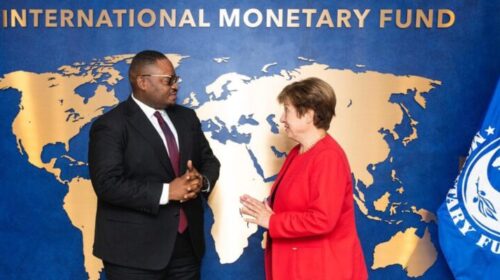Zimbabwe Plans to Replace US Dollar by 2025, but Scepticism Abounds
Zimbabwe’s largest independent asset manager predicts that the US dollar will continue to be the dominant currency in the country, even beyond the government’s December 2025 deadline to phase it out of the economy.
Imara Asset Management, responsible for managing assets exceeding $100 million, noted that the dollarization of Zimbabwe’s economy is gaining momentum.
This trend has been expedited due to government measures taken in July to limit the availability of the local currency in order to maintain its value.
Statistics from the national statistics agency reveal that 80% of all economic transactions in Zimbabwe are currently conducted in the US dollar, marking an increase from the 75% recorded earlier this year.
“We are making the bold assumption that the US dollar will remain in place for a good while yet,” wrote John Legat and Shelton Sibanda, the company’s chief executive officer and chief investment officer, wrote in a quarterly note to clients Thursday. “The loss of the use of the US dollar would be a disaster for the economy.”
Bloomberg reported that the Zimbabwean dollar has experienced a turbulent history. In 2009, the southern African nation abandoned it due to hyperinflation and adopted the US dollar as its primary medium of exchange.
In June 2019, the Zimbabwean dollar was reintroduced, with all other legal tenders, including the US dollar, being outlawed.
However, that policy was reversed in April 2020 due to the onset of the coronavirus pandemic. The government now plans to allow the use of the US dollar only until December 2025, after which it aims to stop its circulation in the country’s economy.
The uncertainty surrounding the upcoming currency regime has made banks cautious about lending beyond 2025. This caution has resulted in increased borrowing costs for businesses and individuals while also limiting the availability of funding for long-term investments.
In the past, loans denominated in US dollars from banks were repaid in the local currency, causing lenders to incur losses due to foreign exchange rate volatility.
Finance Minister Mthuli Ncube stated last week that the authorities were considering the next steps regarding the country’s currency policy. “We will not do things in a manner that will jeopardize the growth that we have seen so far,” said Ncube.
Zimbabwe’s President Emmerson Mnangagwa has strongly advocated for a return to the exclusive use of the Zimbabwe dollar.
However, Imara Asset Management also expressed skepticism regarding the gold-backed digital currency known as “ZiG,” a new gold-backed digital currency to halt re-dollarization.
It said there is no proof that the ZiG is either backed by any physical gold or can be converted into gold and is largely a “project” of the central bank.
![]()





